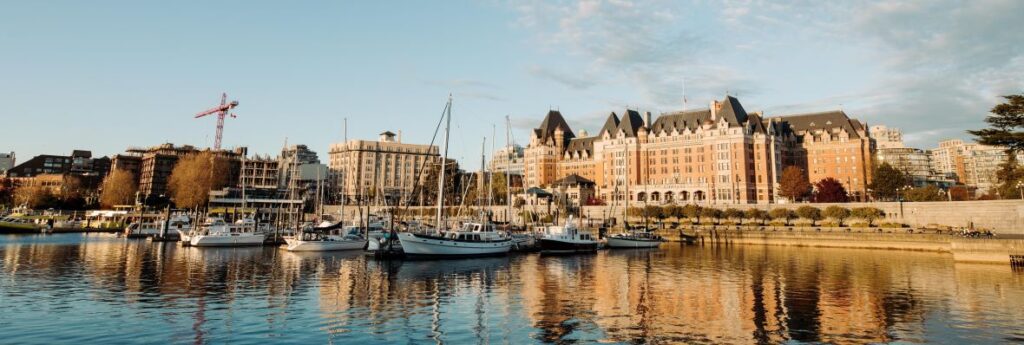The head of Victoria BC’s harbour authority says two US bills proposed by a congressman and senator aimed at allowing Alaska-bound cruise ships to bypass Canadian ports would have a “devastating” effect on British Columbia’s economy. The proposed legislation would see Alaska-bound vessels skip Canadian ports, if they wish.
Ian Robertson, CEO of the Greater Victoria Harbour Authority, says that would impact the roughly $143 million the cruise industry brings into Victoria every year and he is urging all levels of government need to work to address the issue.
Currently major cruise lines – most of which are flagged in countries other than the US – are not allowed by US maritime law (under the Passenger Vessels Services Act) to carry passengers between two US ports without a stopover in a foreign country during their cruises, which most notably benefits Canada on Alaska itineraries from America’s west coast.
However, Alaska Senator Lisa Murkowski says the pandemic, which saw Canada bar cruise lines from stopping in BC ports, including Victoria and Vancouver, had the unintended consequence of putting Alaskan businesses at the mercy of the Canadian government.
The restriction will be lifted effective Nov. 1, in time for next season, however the limitations during the past summer prompted Murkowski to introduce the “Alaska Tourism Recovery Act” earlier this year, which allowed ships headed to Alaska to skip their traditional stop in Canada.
The Act, which was signed into law in May, was intended to be temporary, stating it would remain in effect “until either the date on which Canada lifts restrictions prohibiting cruise ships from docking in its waters due to the COVID-19 pandemic or March 31, 2022.”
However, despite the Canadian ban now being set to expire, Murkowski wants the move to be permanent for ships carrying more than 1,000 passengers to Alaska.
“(The act) nearly wiped out southeast Alaskan economies as we saw business after business ready to welcome visitors, but unable to because Canadians would not respond to our requests to allow foreign stops at their ports to meet the requirement of PVSA,” Murkowski said during an address to the Southeast Conference Annual Meeting last week.
She added, “We cannot let that happen again.”
Robertson says he is both surprised and disappointed at the development, adding, “It would be devastating.”
But he believes the province is taking the threat of an economic impact more seriously than it did in the spring when a bill was quickly introduced and passed in the US House of Representatives aimed at adjusting the same law.
Premier John Horgan initially said at the time the legislation was a “blip” that wasn’t likely to pass quickly, before it did, forcing him set up meetings with US officials.
Robertson says the next federal government needs to take the issue seriously, stating, “It’s a file that requires all hands on deck. There needs to be advocacy at the highest level.”
Horgan said he is in discussions with Canada’s ambassador to the US, Kirsten Hillman, about the situation. “We’ve worked with her to ensure the congressional delegations understood the importance to British Columbia and to the relationships between Canada and the United States, that passage not be confined to Seattle and Alaska,” he said, adding he would be discussing the issue with the next prime minister after the election.
BC tourism minister Rob Fleming said in a statement that he is working with industry leaders and his federal counterparts to raise awareness of the issue. “The cruise ship industry is vital to BC tourism, and to thousands of people whose livelihoods rely on the regular arrival of ships,” he said.

